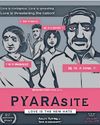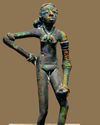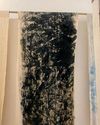
The educated criminal is the most dangerous kind. — John G. Diefenbaker
Wharton dropout Nirav Modi embezzled ₹6,498 crore from the Punjab National Bank through fake documentation. Former ICICI Bank CEO Chanda Kochhar was arrested for misusing ₹1,700 crore for personal gain. Yes Bank’s Rana Kapoor spent four years in prison for bank fraud.
These incidents illustrate white-collar crimes—financially motivated offences by educated individuals in positions of trust. Such crimes encompass deceit, hiding information and violating trust through activities like fraud, money laundering, cybercrime and insider trading. White-collar criminals know the potential consequences, and are often driven by greed. Alarmingly, the National Bar Association reports a 15 per cent annual increase in white-collar crimes in India.
Society views modern managers as savvy, affluent and impressive. For many Indian families, b-school is the ticket to this lifestyle. MBA graduates from top schools join a privileged class, shouldering major responsibilities and earning hefty paychecks. White-collar crime happens when graduates misuse their education. The relentless focus on profit creates immense pressure and opportunities for quick, unethical gains. This leads to financial traps that can ruin both themselves and others.
This story is from the November 17, 2024 edition of THE WEEK India.
Start your 7-day Magzter GOLD free trial to access thousands of curated premium stories, and 9,000+ magazines and newspapers.
Already a subscriber ? Sign In
This story is from the November 17, 2024 edition of THE WEEK India.
Start your 7-day Magzter GOLD free trial to access thousands of curated premium stories, and 9,000+ magazines and newspapers.
Already a subscriber? Sign In

POSTERS OF PROTEST
Appupen is a cartoonist who has published a few graphic novels, the latest being Dream Machine, about how AI can be a great 1 tool for an! authoritarian regime.

CLASH OF THE CIVILISATION
Even as the discovery of the Indus Valley Civilisation completes a century, some key aspects of this ancient culture remain mysterious, including its script. While the controversy over whether it was disrupted by an Aryan invasion may now be discredited, the debate over Indus ancestry and current links continues

A PROVEN PATHWAY TO PEACE
Low-cost, easy to implement, immediate results, and scientifically verified.

FOOTBALL GIVES THEM A KICK
For the children of Manipur and Mizoram, the great game is a way to a prosperous future

BATTLE FOR TOMORROW
Over the past decade, much has been said about India's potential as a leading global power.

THE TONGUE THAT TURNED
Why Greek survived while Latin and Sanskrit declined

USTAD ZAKIR HUSSAIN 1951-2024: HIS MUSIC WAS THERAPY TO THE WORLD
Flautist and Grammy co-winner Rakesh Chaurasia remembers the maestro

The magic of indigo
I really can't imagine why more of us don't throng Goa each December for the Serendipity Arts Festival alone. The festival, in its ninth year now, has the entire Panjim town celebrating.

NEW YEAR.NEW HOPE
EQUITY MARKETS HAVE TURNED VOLATILE OF LATE. WHAT TO EXPECT IN THE NEW YEAR

Seeking middle ground in Middle East
The collapse of assumptions is like the end of the world-or worldview. We assumed conwith the 20th century. But wars in Russia-Ukraine, Gaza, Yemen, Sudan, Somalia and Lebanon prove us wrong. Western defence officials now raise the nuclear threat level.